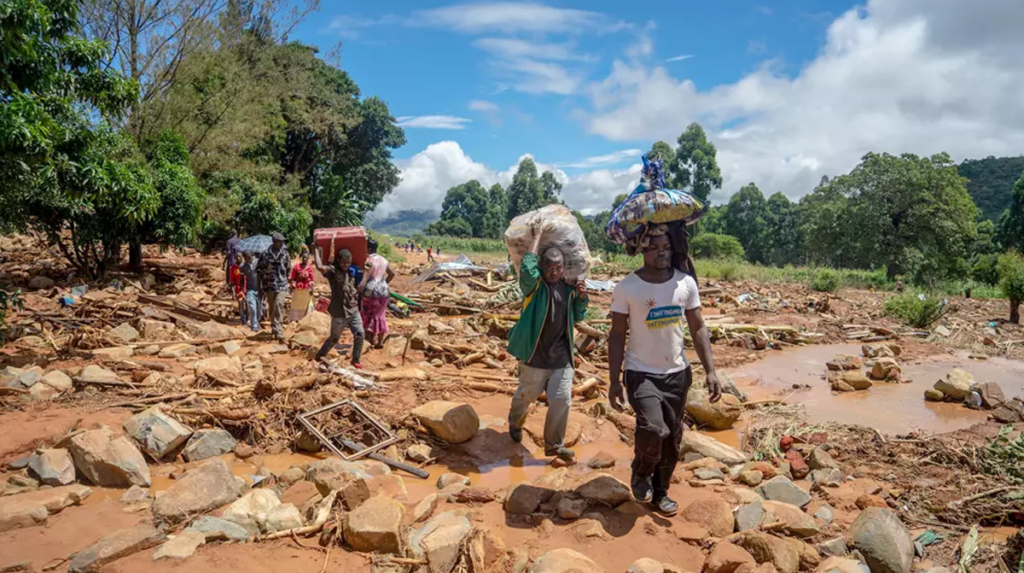Chimanimani, Zimbabwe – Four years after Cyclone Idai devastated this mountainous district, a shadow still hangs heavy. The Mutare High Court’s recent declaration of 279 missing persons as dead brings closure for some, but for many, the wounds remain raw. The Network for Environmental and Climate Justice (NECJ) urges not just healing, but true climate justice for Chimanimani.
While 340 lives were tragically lost in the 2019 disaster, the 279 missing represent broken families, shattered livelihoods, and a stark reminder of climate change’s brutal impact. It’s an impact that doesn’t stop at deaths; floods triggered by a changing climate threaten fundamental human rights like access to water, food, and shelter.
Chimanimani’s lush slopes witnessed agricultural devastation, turning farmers into environmental refugees. Mental health struggles grip the community, a silent epidemic born from the tragedy. These consequences go beyond the physical; they strike at the heart of social justice and sustainable development.
NECJ calls for climate justice programs that recognize Cyclone Idai’s disproportionate impact on vulnerable communities, particularly women and girls. Climate action, they argue, must be guided by human rights principles like participation, transparency, and non-discrimination. Affected individuals must have a voice in shaping their future, not merely be recipients of aid.
The NECJ urges the Zimbabwean government and development partners to:
- Respect, protect, and promote all human rights for those affected, ensuring no one is left behind.
- Empower vulnerable communities to adapt to climate change, prioritizing resources for those most at risk.
- Mobilize resources for economic, social, and cultural rights alongside civil and political rights. International cooperation is crucial in this endeavour.
- Promote equity in climate action, ensuring benefits reach future generations and those in precarious situations.
- Address gender inequality and champion the rights of children, older persons, and all vulnerable groups.
- Facilitate informed participation by the Chimanimani community in decision-making regarding climate change and natural disasters. Transparency and community consultation are key.
- Strengthen disaster preparedness by devolving resources for localized responses.
- Mainstream climate change in all policies and work with civil society, traditional leaders, and local communities to raise awareness.
Human rights and social justice must be the bedrock of responses to climate change and its devastating consequences. Only then can Chimanimani, and communities like it, truly heal and build a future resilient to the storms of tomorrow.
I am a humanitarian writer, photo and video journalist telling development and innovation stories across the continent. You can see more of my work on www.tambira.co.zw and www.muckrack.com/shepherd-chabata Send story ideas and tips to:
shepherd@devage.co.zw
